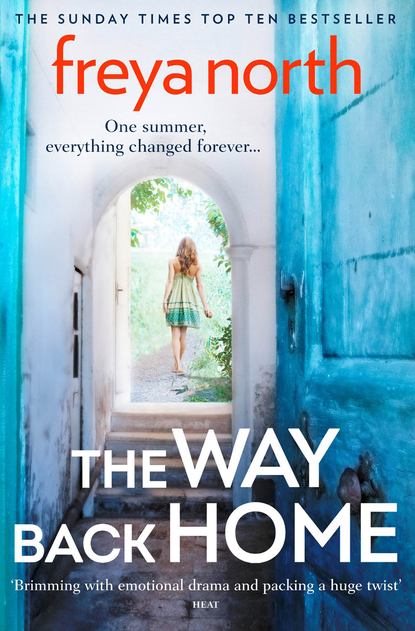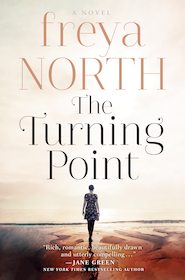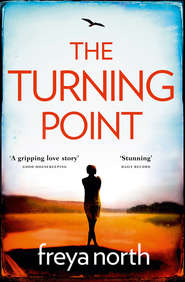По всем вопросам обращайтесь на: info@litportal.ru
(©) 2003-2024.
✖
The Way Back Home
Автор
Год написания книги
2018
Настройки чтения
Размер шрифта
Высота строк
Поля
‘And you wanted to go with her?’ Ben was trying to second-guess. Cat looked at him blankly. ‘Or – you wanted her to let you know she was going? Or had been?’
‘You would’ve thought she’d’ve phoned me.’ She felt hot, uncomfortable. ‘Whatever. Doesn’t matter. I don’t want to talk about it. Let’s watch telly. Can I have a cuppa?’
Ben took the pizza boxes into the kitchen, Cat muted the sound on the television, randomly channel hopping while managing her thoughts. Why is Oriana back? Why would she go to Windward anyway? Why hadn’t she told her – beforehand or straight after? And she thought, have we grown apart? Can friendships not last such lapses? If all you have in common is a shared past, is that reason enough to believe you’ll always be as close as you were? To Cat just then, the past was neither halcyon nor troubling, it was simply a long, long time ago.
Ben made tea and thought to himself how often he had heard his patients who were pregnant complain that people treated them differently – as if growing a baby equated to diminished brain cells and the incapacity for any conversation other than about babies. They felt excluded because of some misplaced need of others to protect them from any topic anything other than bland ones. And, for the most part, they didn’t like it. My baby’s stolen my identity! one had declared. He thought about Oriana. He’d only met her a few times, when they were all living in the United States but, through Cat, he felt he knew her well enough. He remembered how, if ever he answered her call, the first words she’d always say were sorry to bother you.
‘She’ll call,’ he told his wife. ‘She’s probably just worried about bothering you.’
* * *
In Hathersage, no one asked any searching questions. It was enough that ‘Did you have a nice day?’ was met with ‘Yes, thanks, did you?’ In fact, most of the questions came from Oriana who tactfully chose topics she knew Rachel and Bernard could answer at length. The route to Wakefield. The Bennets’ house. What they’d had for their dinner. And their tea. The weather forecast tomorrow. The amount of detail that anodyne subjects warranted was surprising and insubstantial minutiae floated through the evening like musak until it was a respectable time to turn in. As Oriana climbed the stairs, she thought to herself, that’s probably the longest conversation I have ever had with my mother.
It was only after cleaning her teeth, when she caught sight of herself in the mirror unawares, that the magnitude of the day that was closing swept over her again. But it wasn’t what had happened or where she had been. At that moment it wasn’t even whom she had seen. It was who had seen her, looking like this.
Frequently, since her return from the US, her mother had remarked how thin Oriana looked. But ‘thin’ implied something gently fragile, like a bird, like a Hans Christian Andersen character, something young and pretty and ethereal, waif-like. Butterfly wings and gentle breeze and dandelion heads and spun sugar. ‘Thin’ brought out the protective in others. But, now she looked, Oriana didn’t see thin. She saw haggard. She saw gaunt grey. She saw someone to baulk at, to shy away from; to think Christ, she’s aged, she looks terrible. What the fuck happened to Oriana? they’d say. Have you seen her these days? Old beyond her years.
‘Mum!’ She called out before she’d even opened the bathroom door, let alone unlocked it. ‘Mum!’
Rachel’s bedroom door opened. Oriana must have been in conversation with her reflection for quite some time if her mother’s bleariness was anything to go by.
‘What is it? Honey – you OK?’
Bernard could be heard from the gloom of the room saying everything OK? everything OK? like a daft old parrot trying to keep up with the action.
‘It’s fine,’ Rachel called back at him. ‘We’re good.’
‘My hair,’ Oriana wailed. ‘Look at it! I look hideous. Do you have a good hairdresser? Are they open Sundays?’
‘You look fine,’ said Rachel, agitated. ‘You’re a bit thin – but you’re tired. Go to sleep and yes, I have a hairdresser,’ and she touched her own hair as if to double-check. ‘And no, they’re not open Sundays.’
‘They are in the lead-up to Christmas, love,’ came Bernard’s voice.
‘It’s fucking April!’ Rachel seethed over her shoulder, before clapping her hand over her mouth, wondering how long it had been – truly, how many years – since she’d sworn like that. ‘Look what you made me do!’ she hissed at Oriana. ‘Just go to sleep, for God’s sake.’ Reproach and dislike creased her face.
Rachel had never spoken to Bernard like that, never. She held his hand tightly as she lay awake, frowning into the dark. Her daughter should not have come back and, just then, she really resented her. Oriana was rested, fed, had a roof over her head, their home and car at her disposal and yet she looked worse now than when she arrived. Where was the gratitude in that? Into the conspiratorial darkness, Rachel let her thoughts find support. She liked her daughter less when she was troubled. In fact, she liked her less when she was in direct contact. If their relationship was to survive – or even go back to how it had been – she really did need her out of the house. Emails and occasional phone calls – that’s when they’d rubbed along best. She actually didn’t much like her at all – an unpleasant sensation that made her feel unwell. Distance and time could alleviate it. It had done so in the past, after all.
* * *
At Windward, Oriana wasn’t mentioned at all that evening. Instead, the Bedwell brothers drank beer and watched sport and shouted at the teams on the television. It was innocuous and boorish, akin to watching in the pub, commentating on the game with people they hardly knew. And Malachy and Jed should have steered clear of Scotch. But the match was over and the beer was gone, so out came the Laphroaig which took the pub philosophizing to the next level as they spouted argumentatively on politics and policies, each brother taking a turn at pulling on the garb of the devil’s advocate and wrestling each other for it.
Jed should have said no to whisky. He didn’t have the stomach for it, especially not after European lager and the disappointment of a two–nil defeat. Consequently, he became very drunk, very quickly and, after decimating bankers, Russian oligarchs and the Tories, he staggered off to bed mid-sentence, only to throw up later in the early hours.
Malachy heard his brother chucking his guts up. Malachy should have said no to whisky too. It didn’t make him paralytic, it made him insomniac and introspective. He hadn’t yet slept when Jed went stumbling to the bathroom. He’d been sitting up in bed, initially comforted by the pitch darkness making him equally blind in his good eye. Velvet black and even. He just sat in bed, appreciating the sensation of both eyes being open and both eyes seeing nothing; feeling that peculiar warmth that came with night-time silence and obscurity, nothing material to see, to imagine, to tax the eye – either eye. But then, the undeniable sense that darkness is not a constant but a flux; forms beginning to emerge as his good eye told his lost eye what they were. Mahogany chest. Flung shirt. Door frame. Right shoe. Something else – wallet. What’s my wallet doing on the floor? Left shoe. Handles on the wardrobe doors that look like cartoon eyes.
Вы ознакомились с фрагментом книги.
Приобретайте полный текст книги у нашего партнера:
Приобретайте полный текст книги у нашего партнера:











